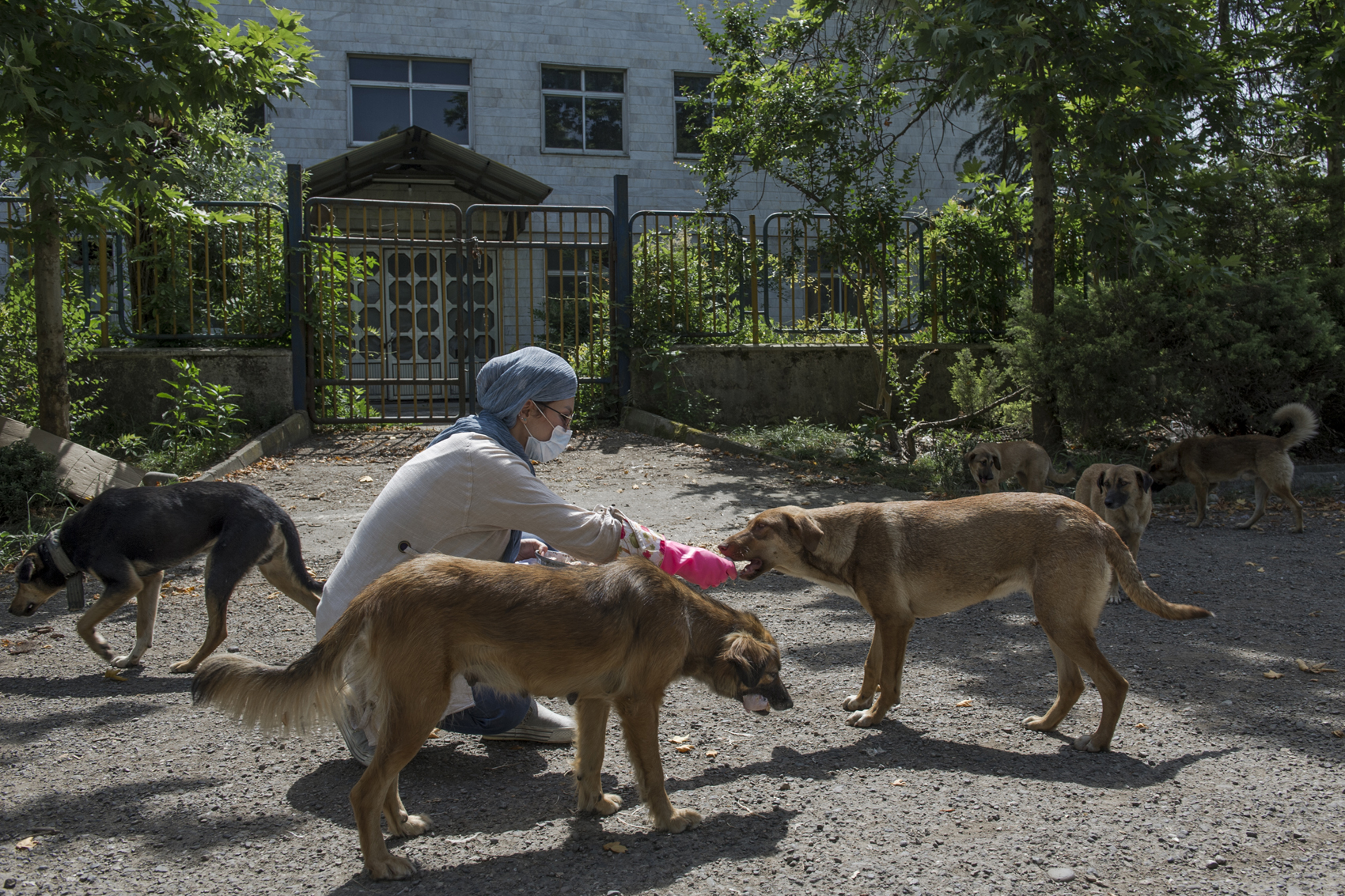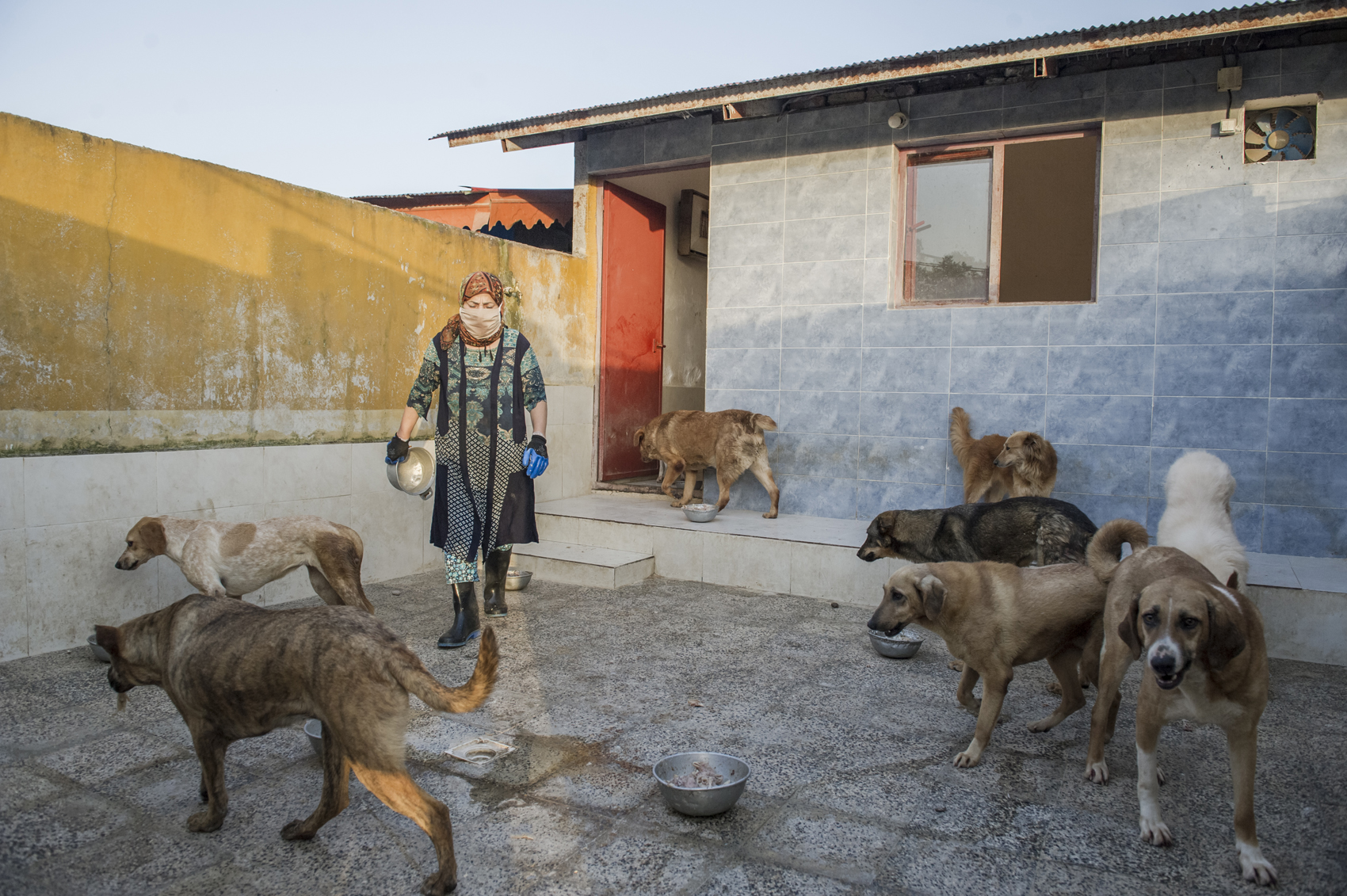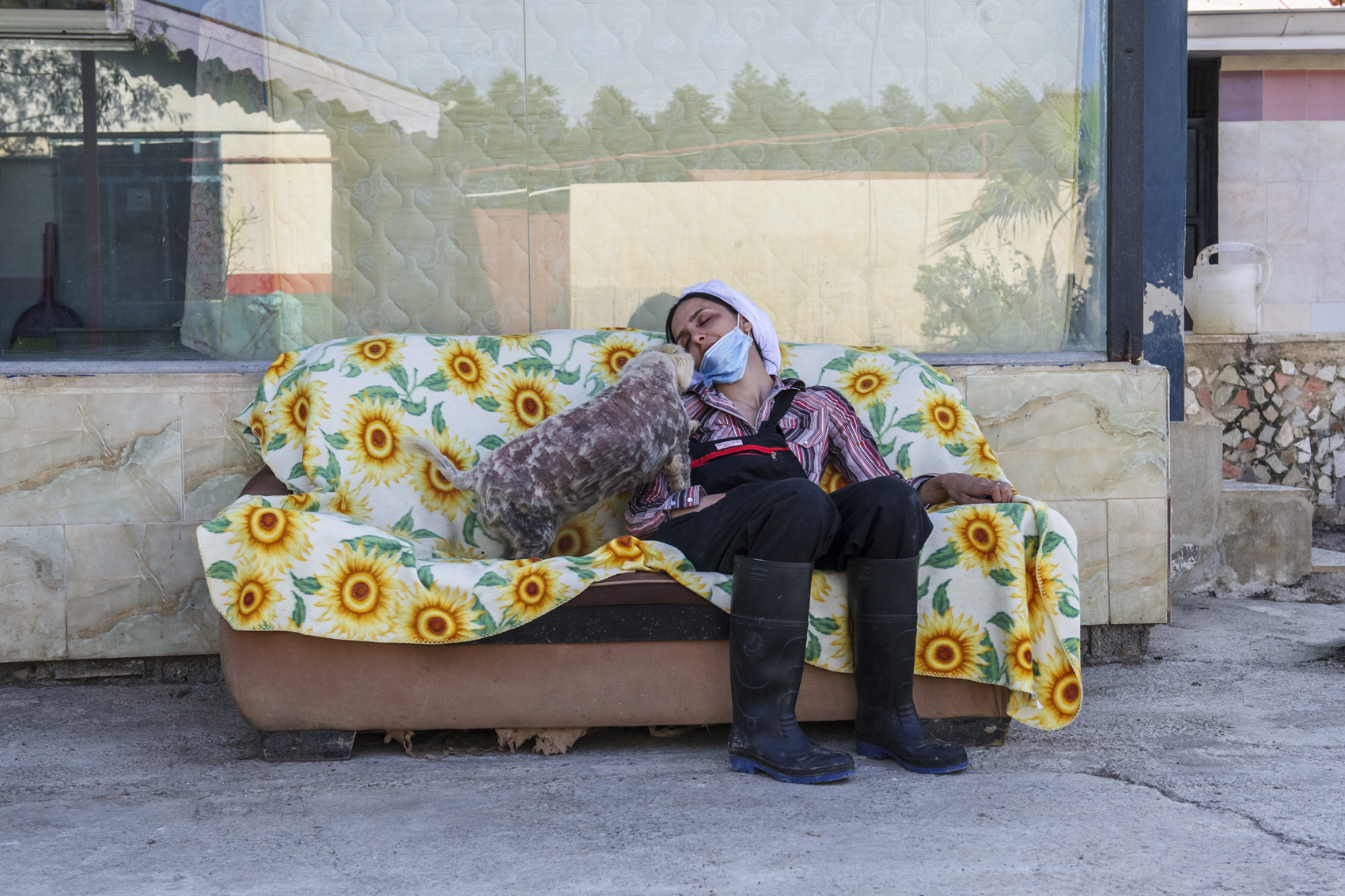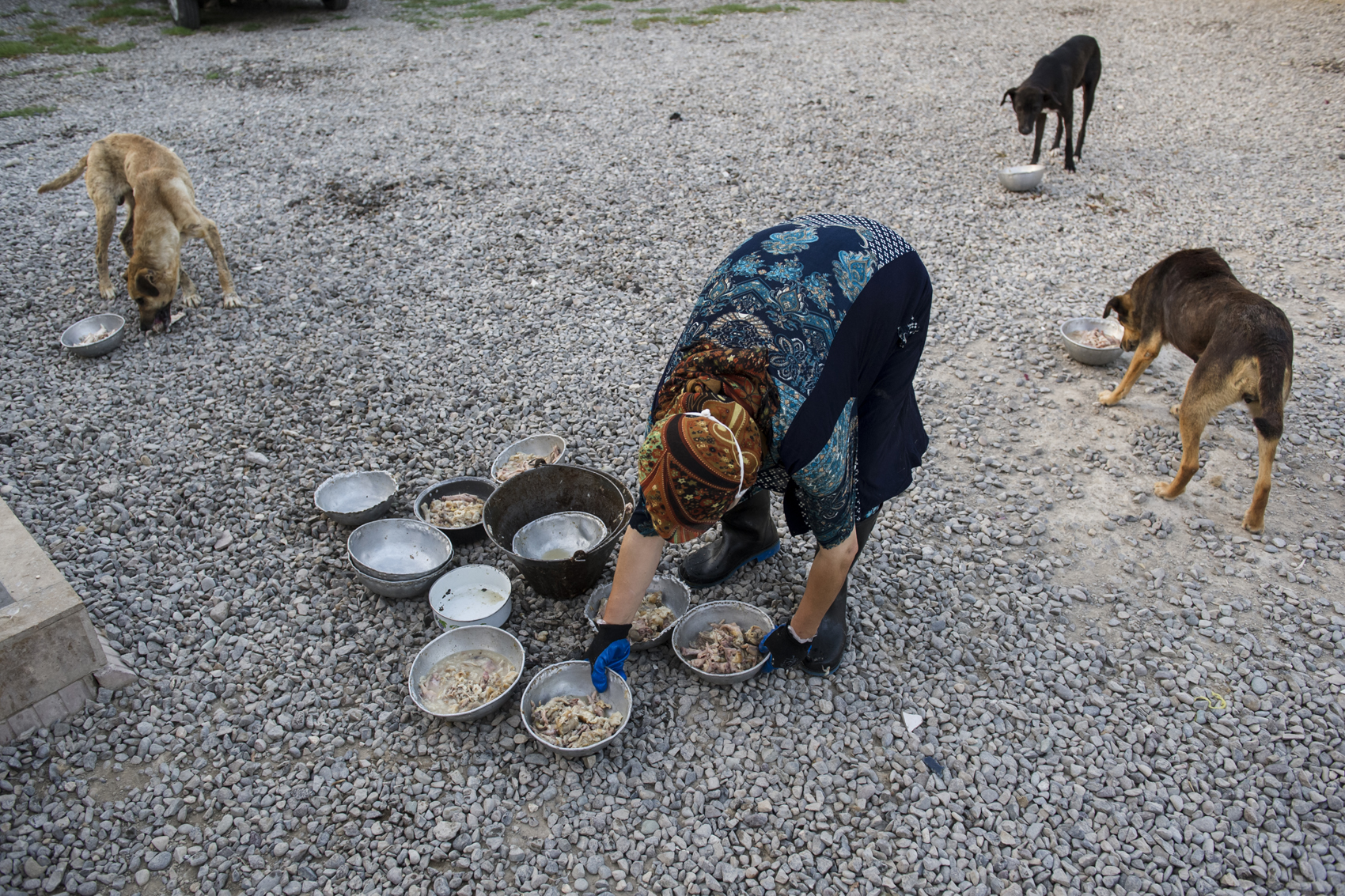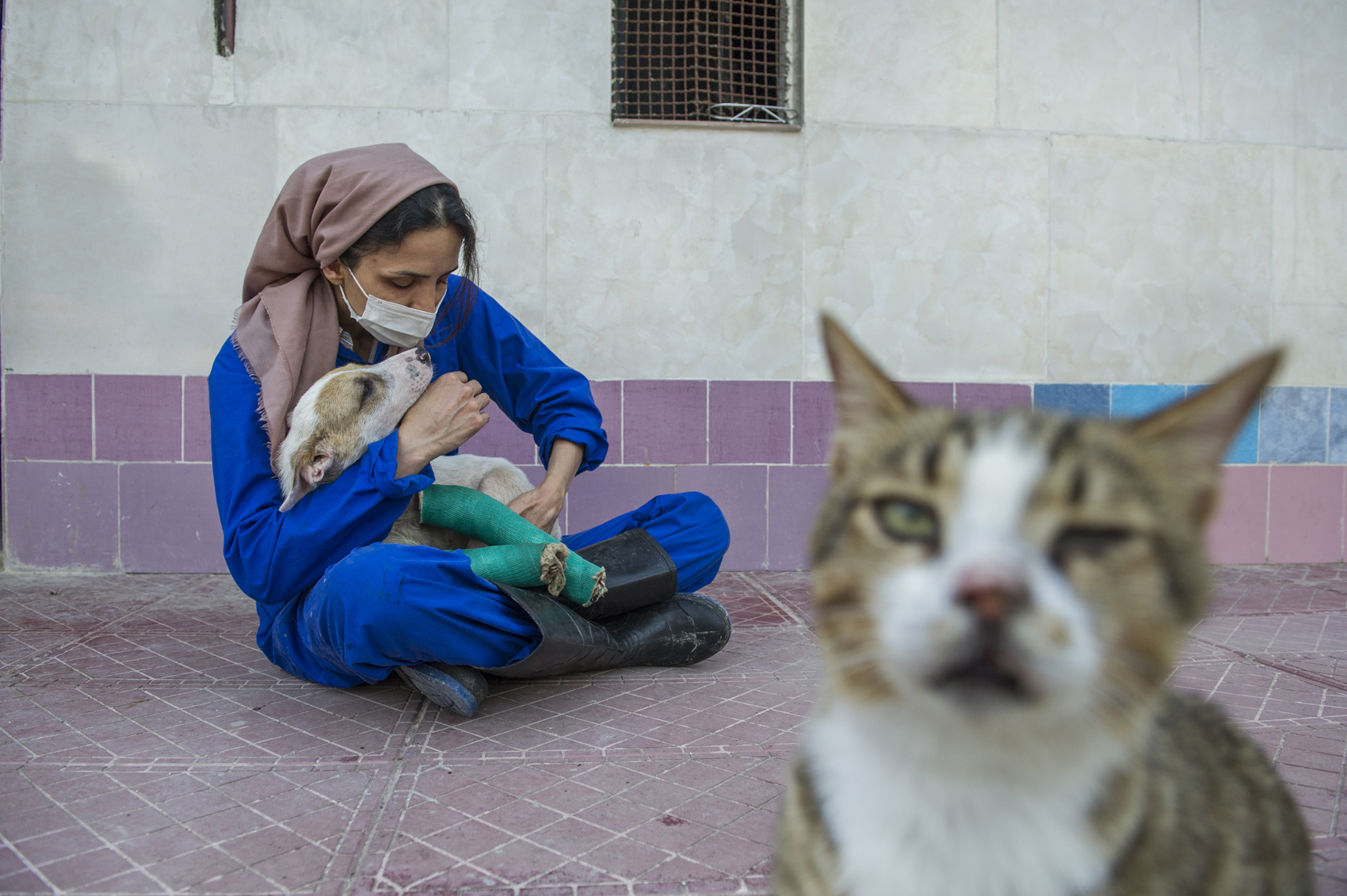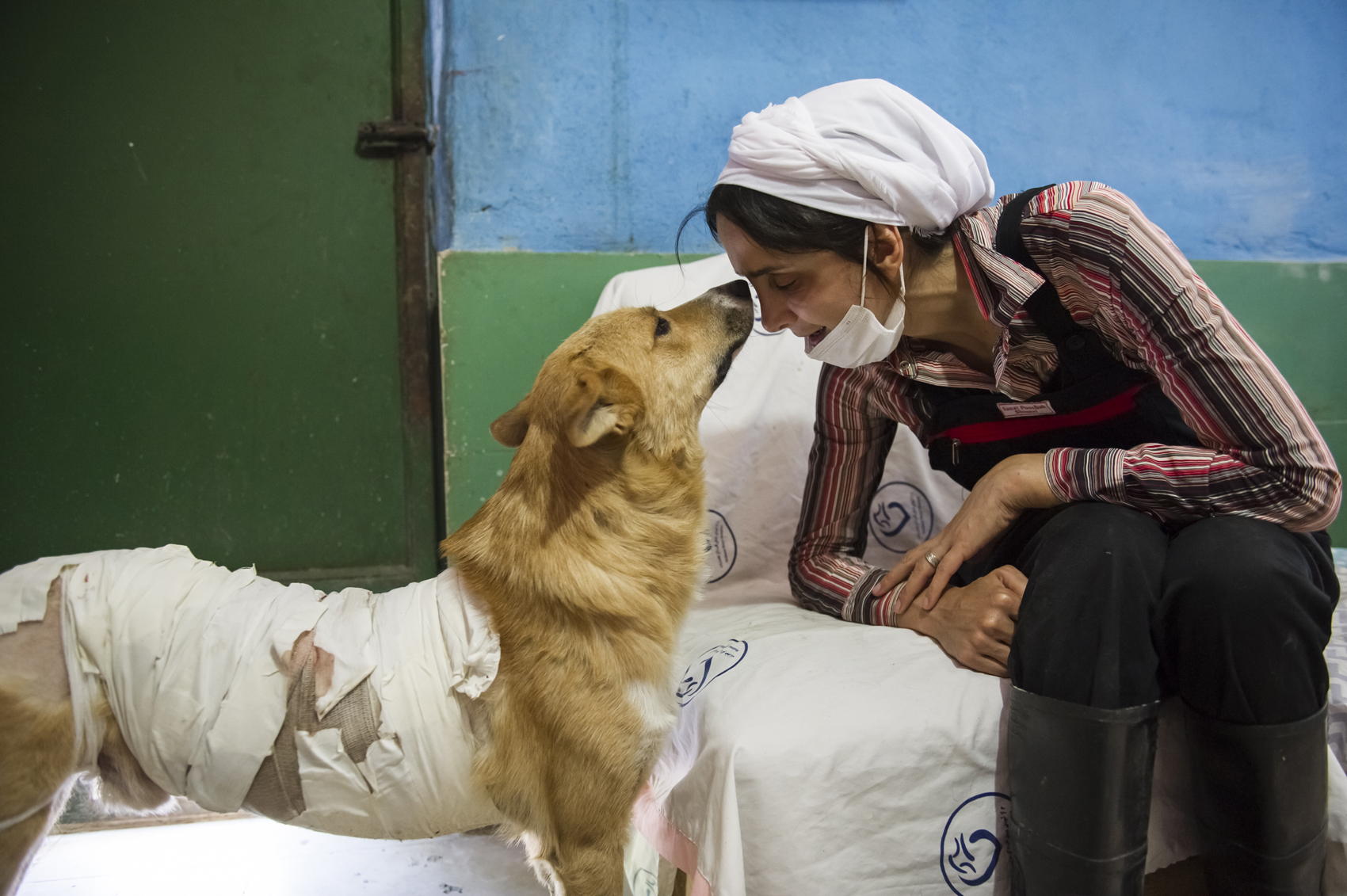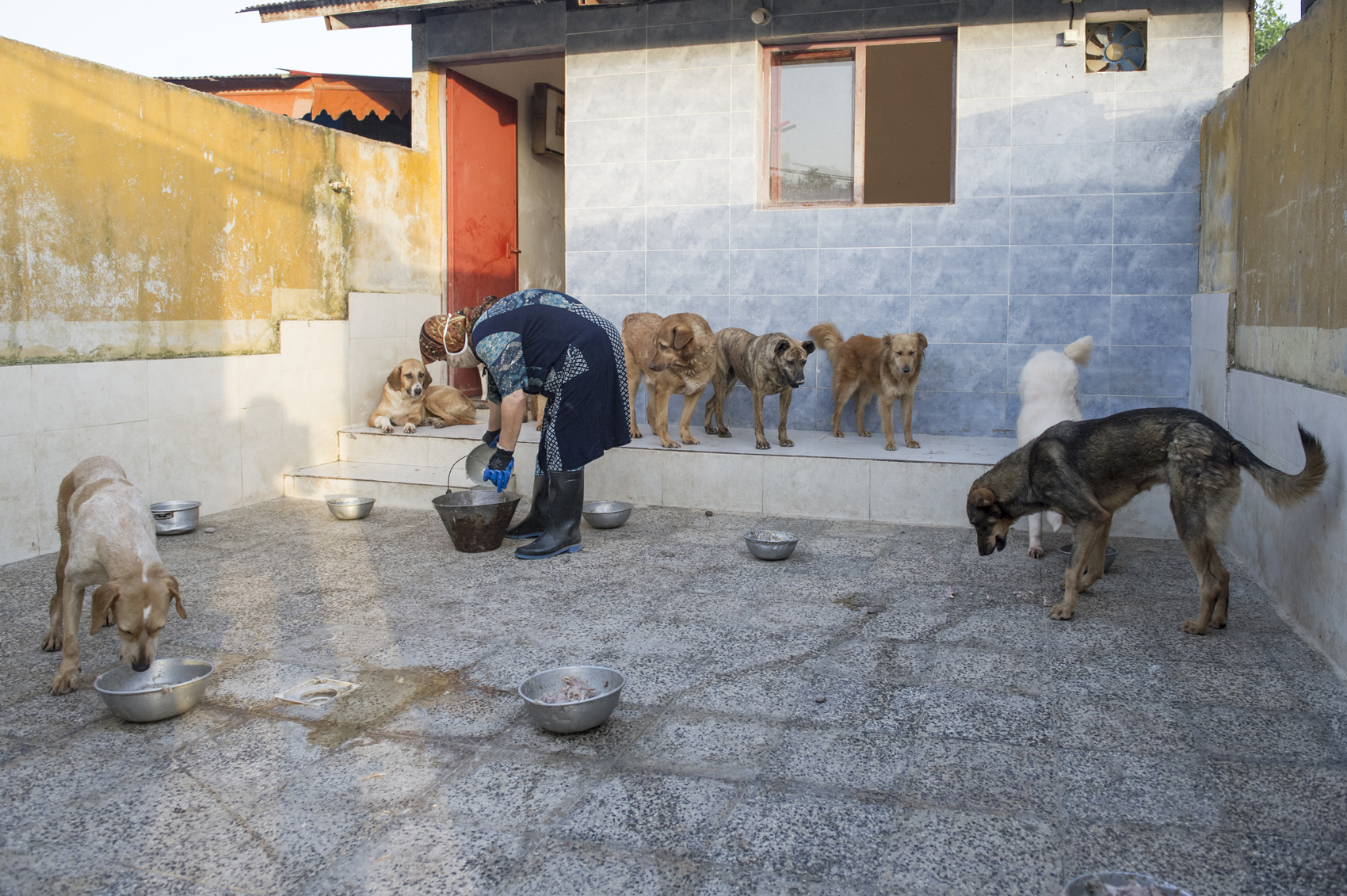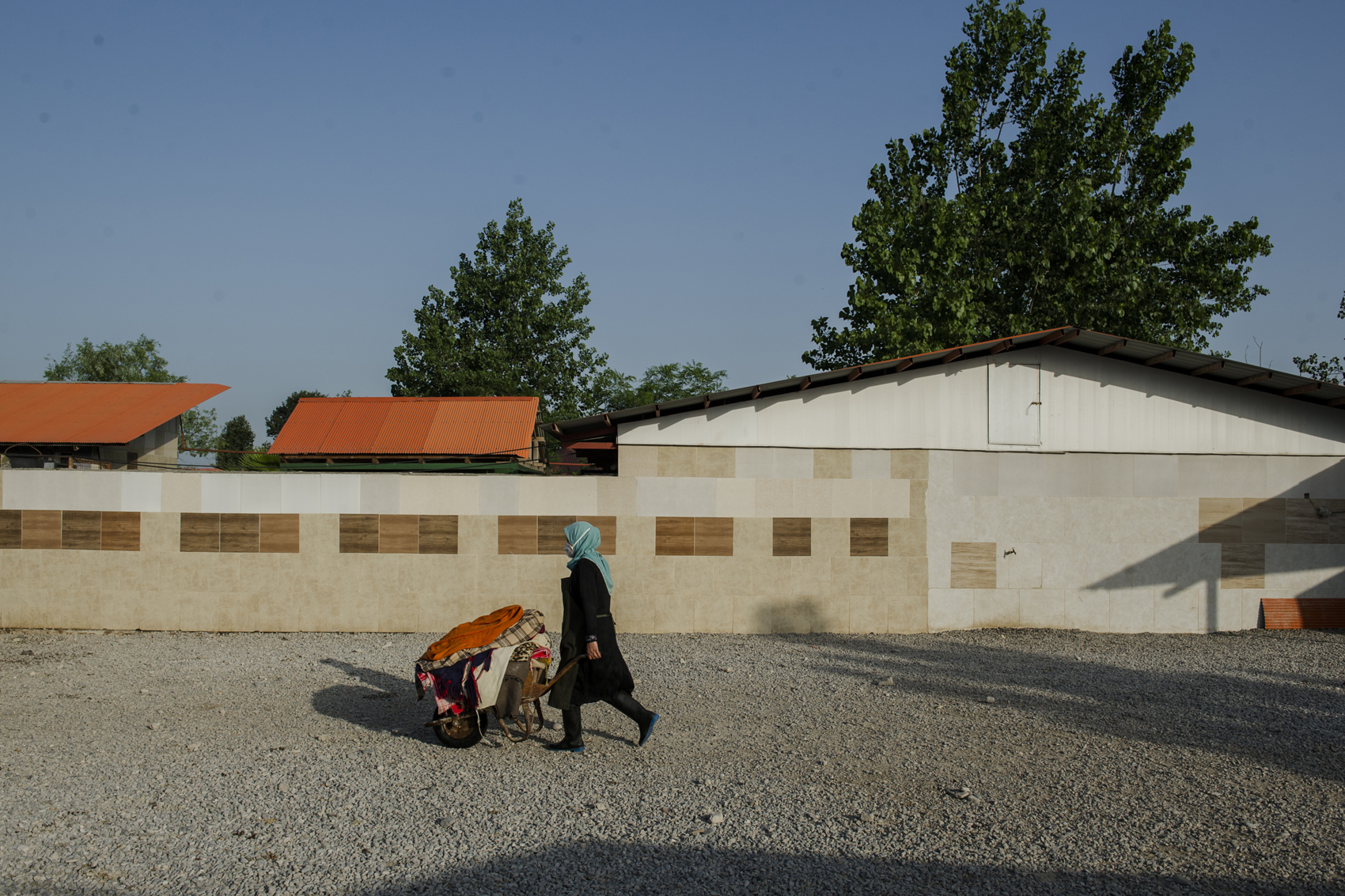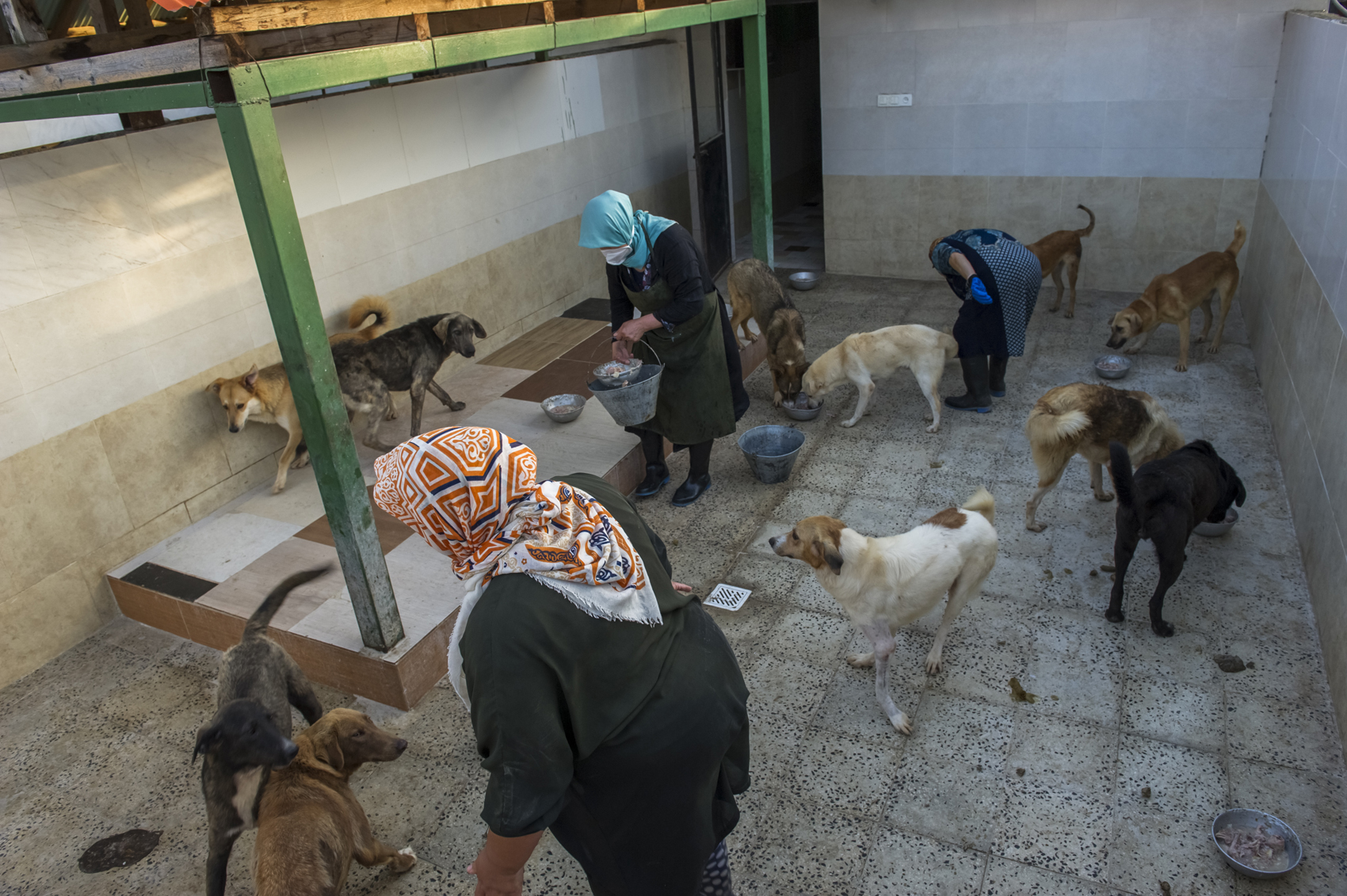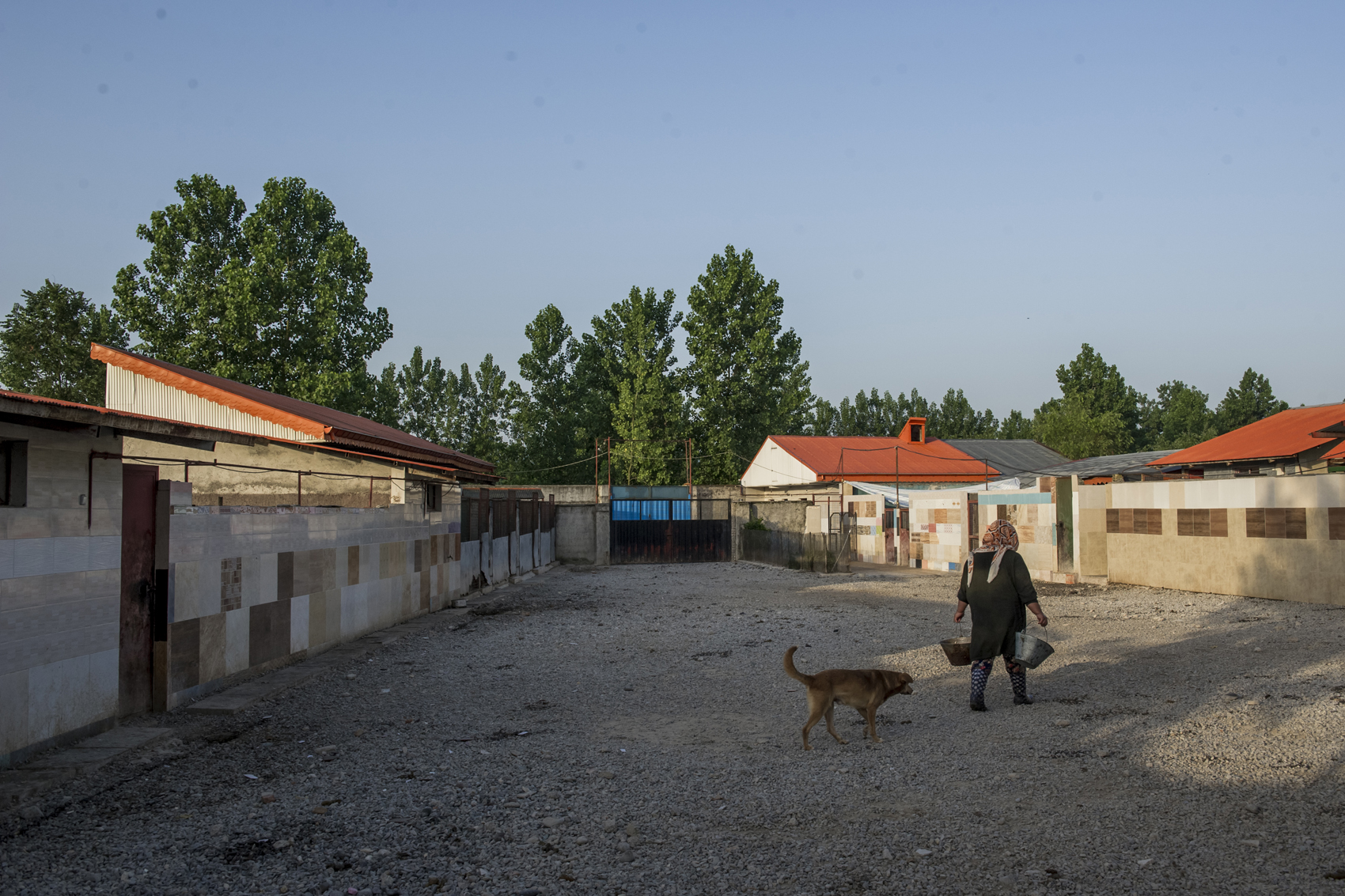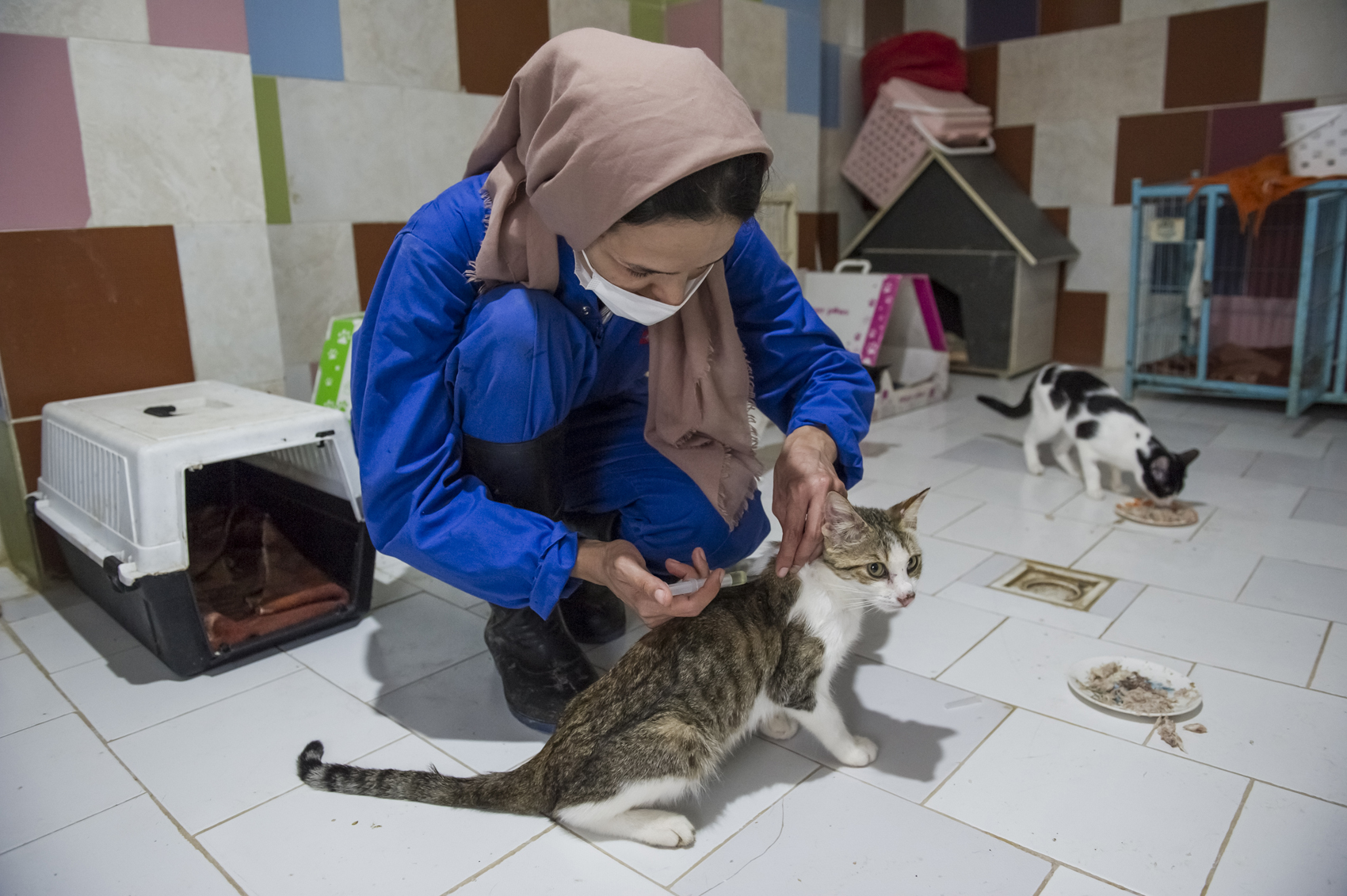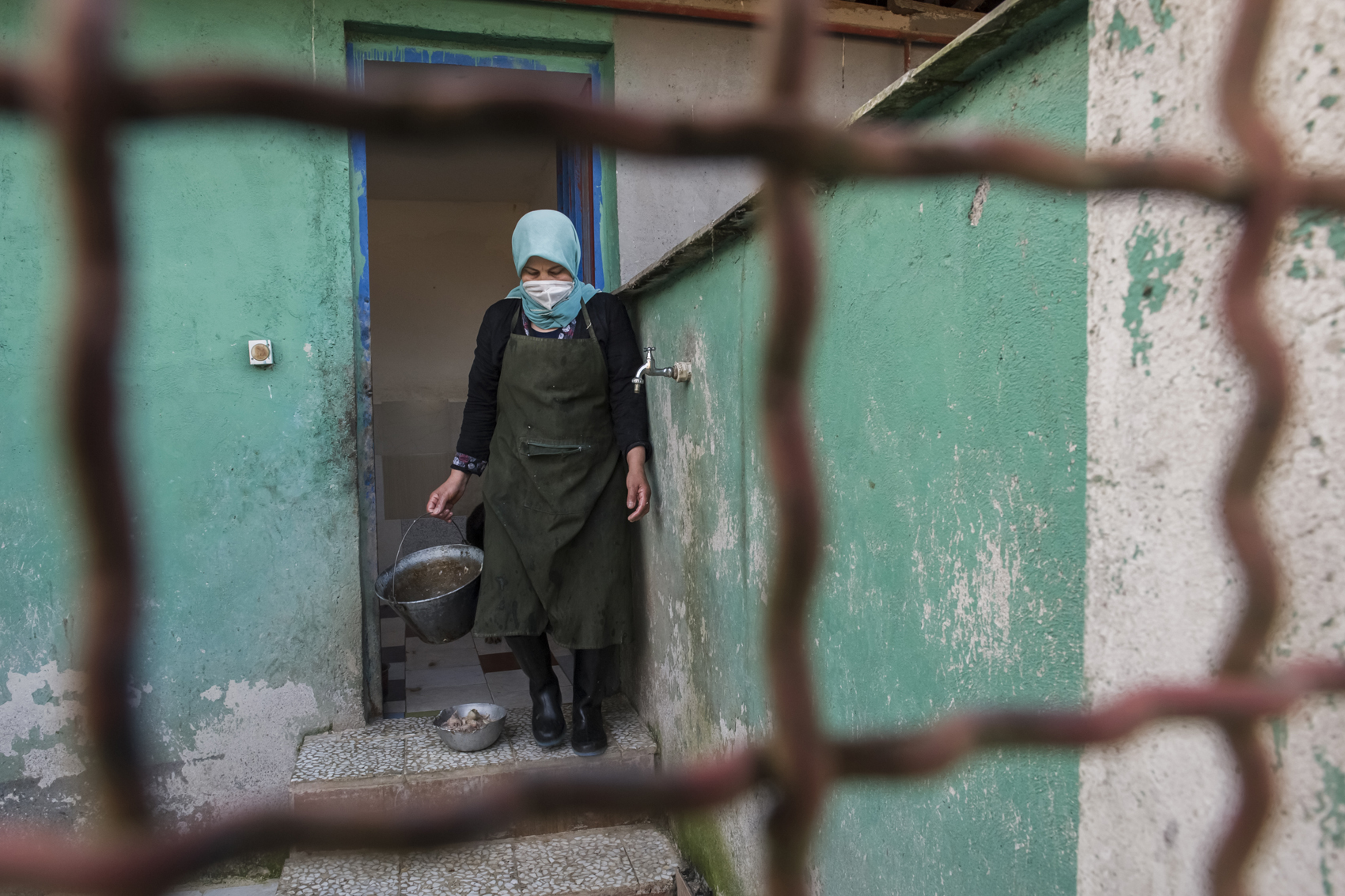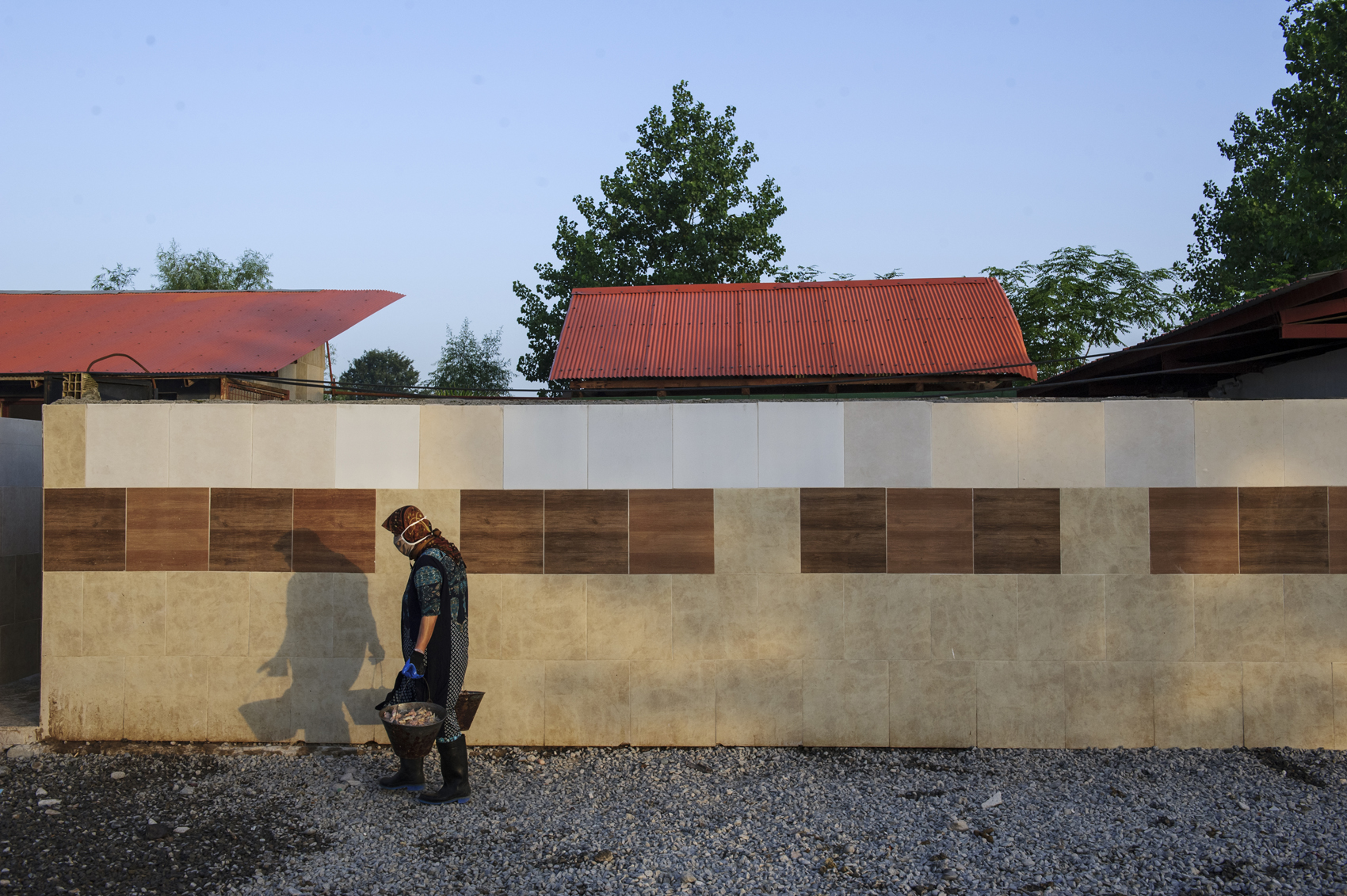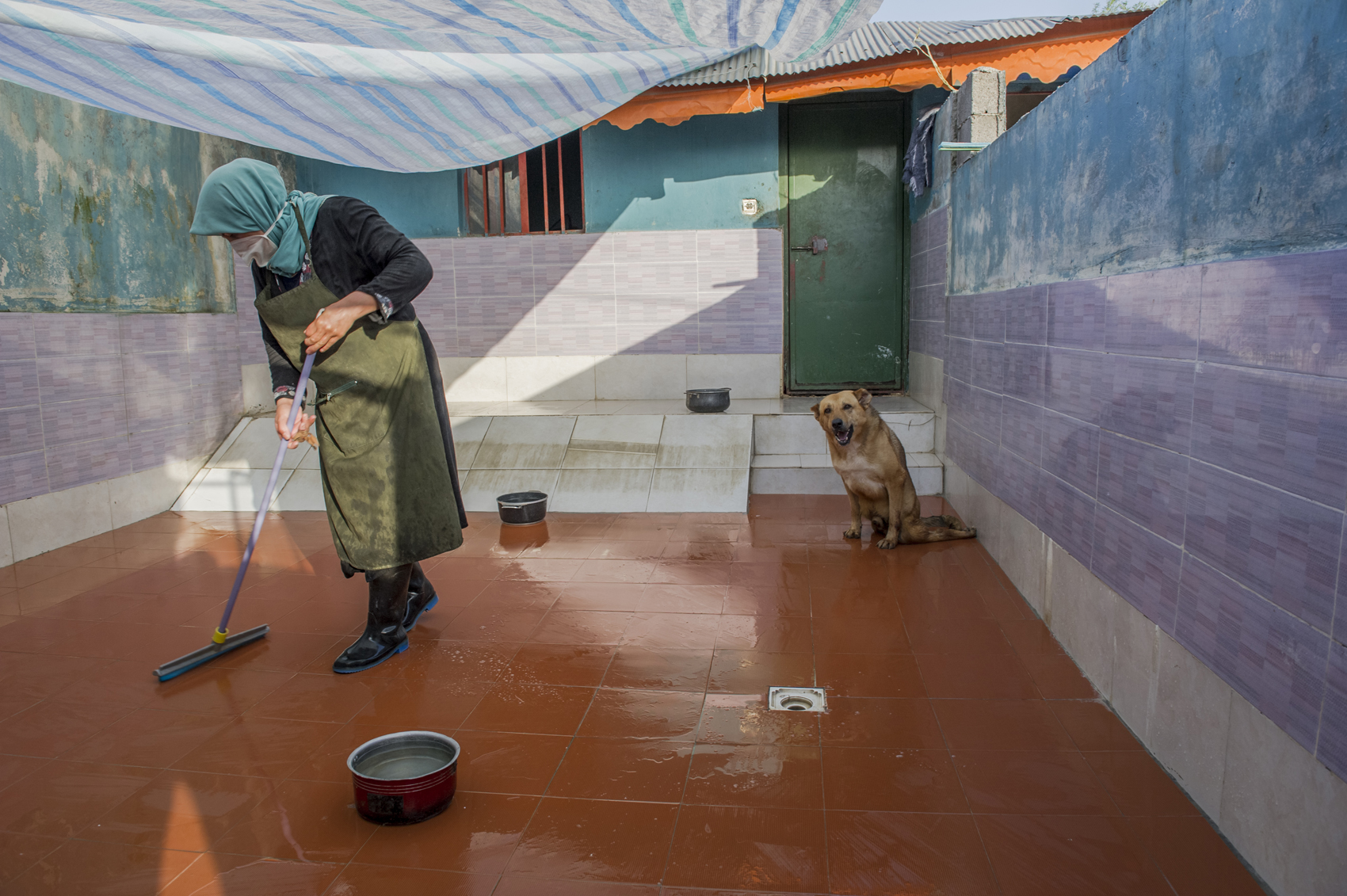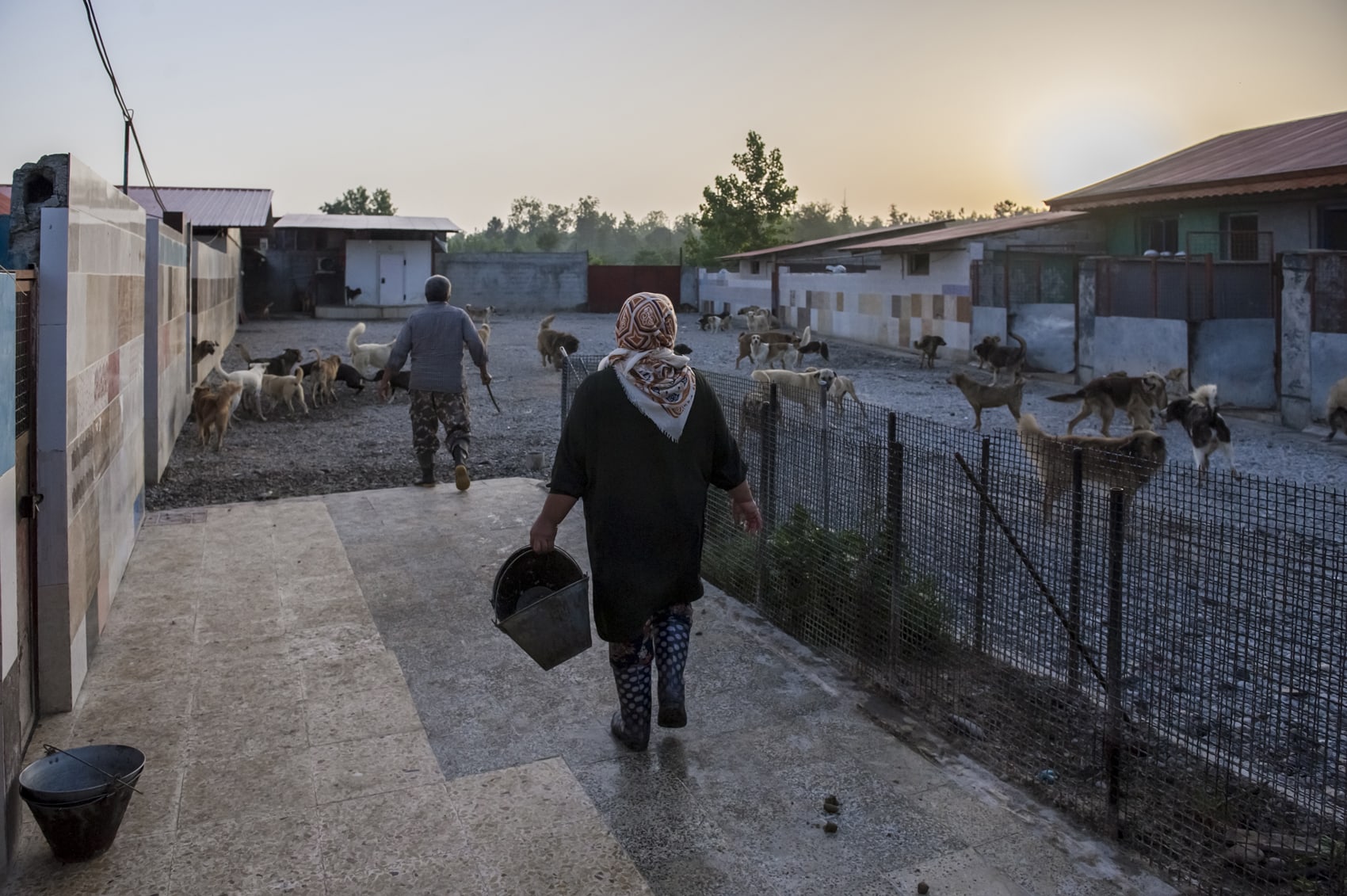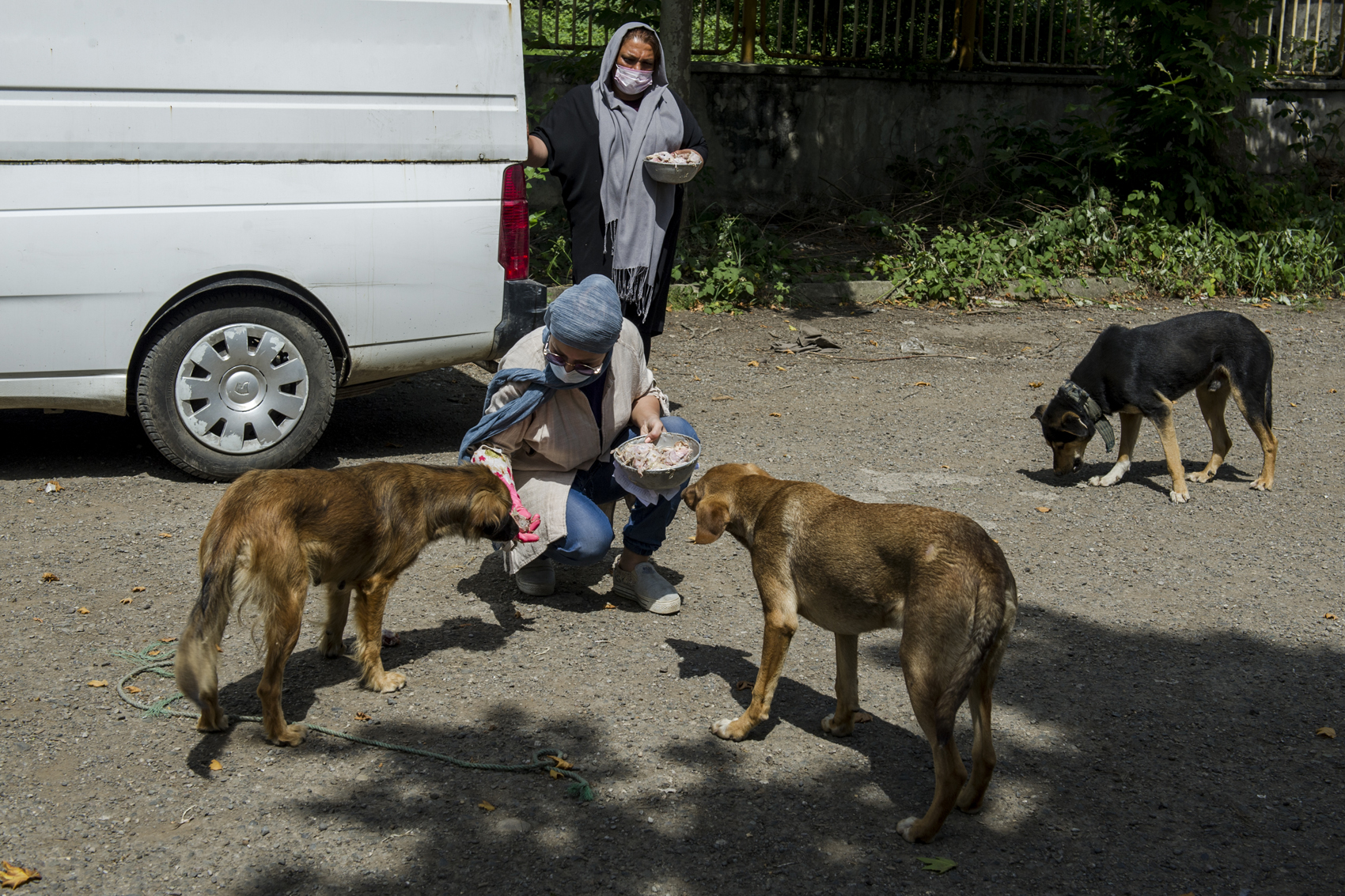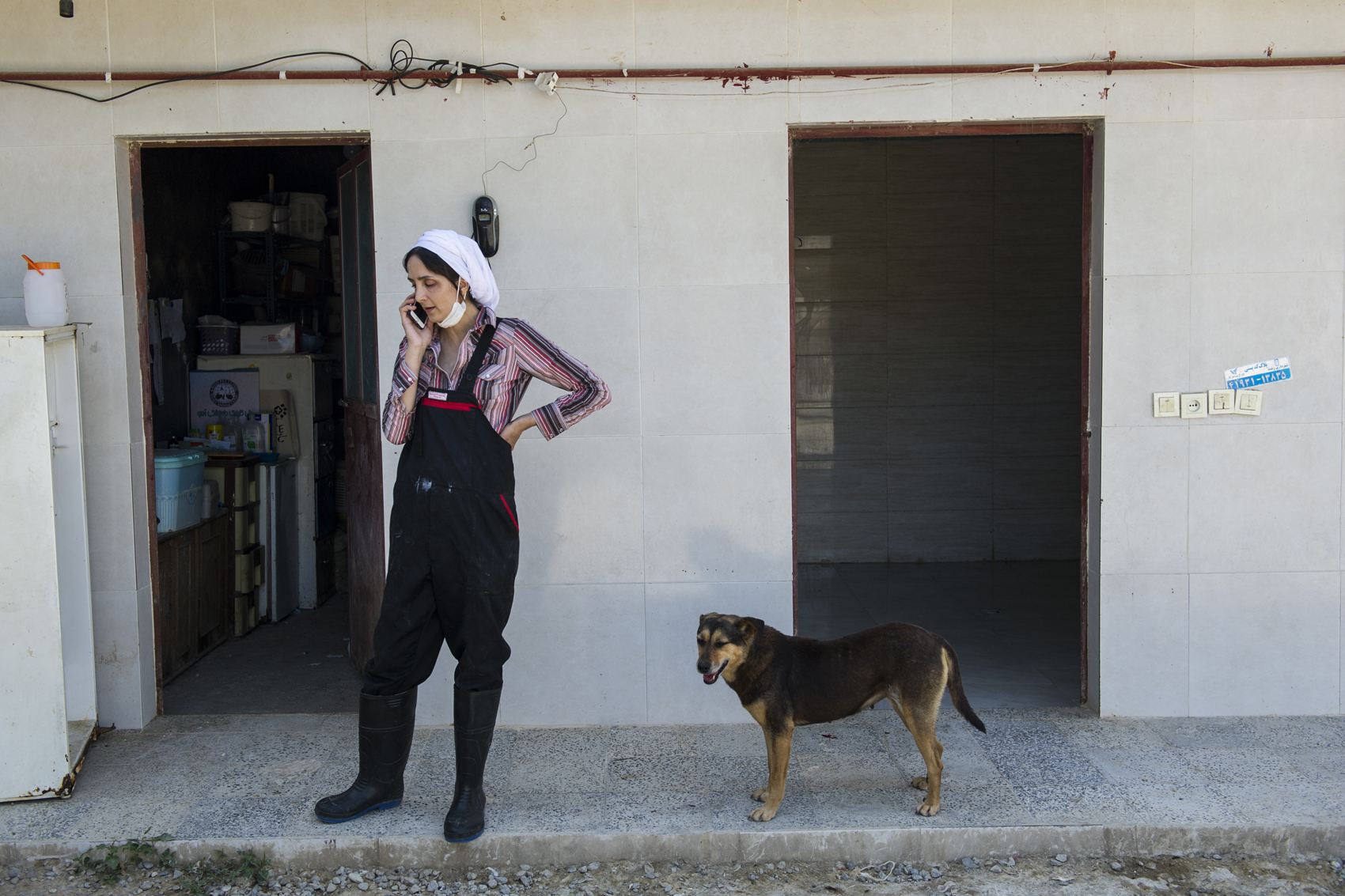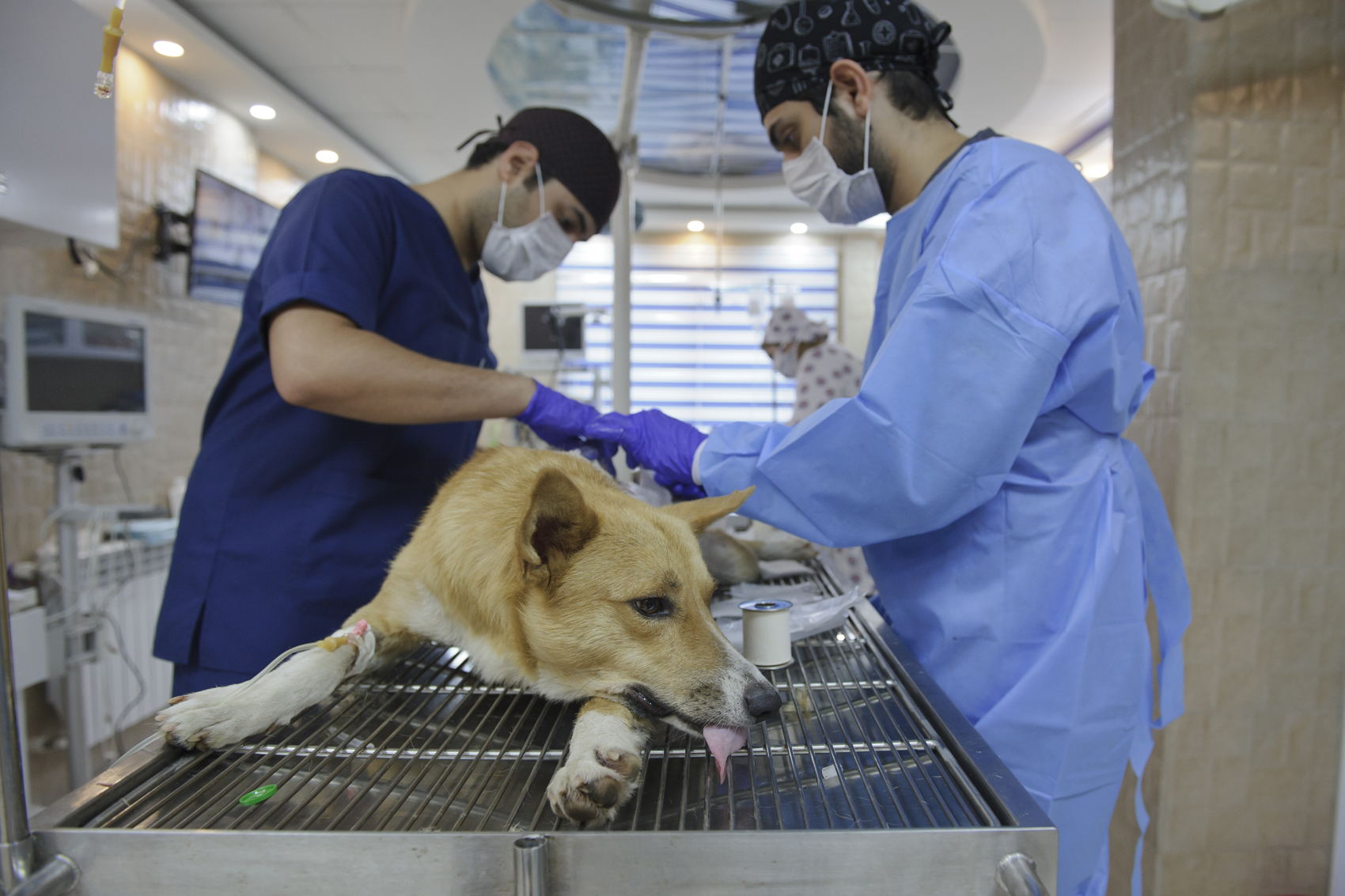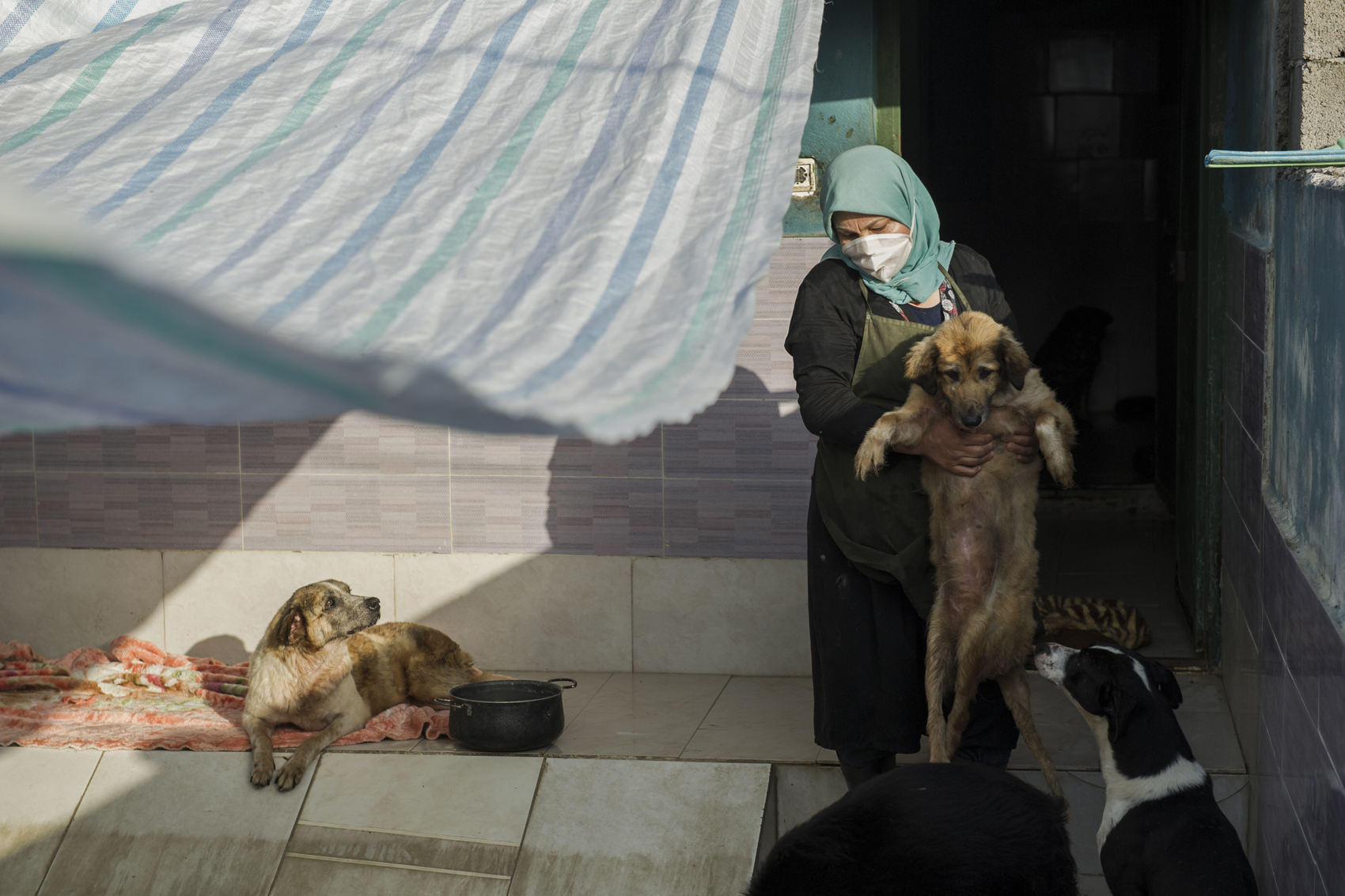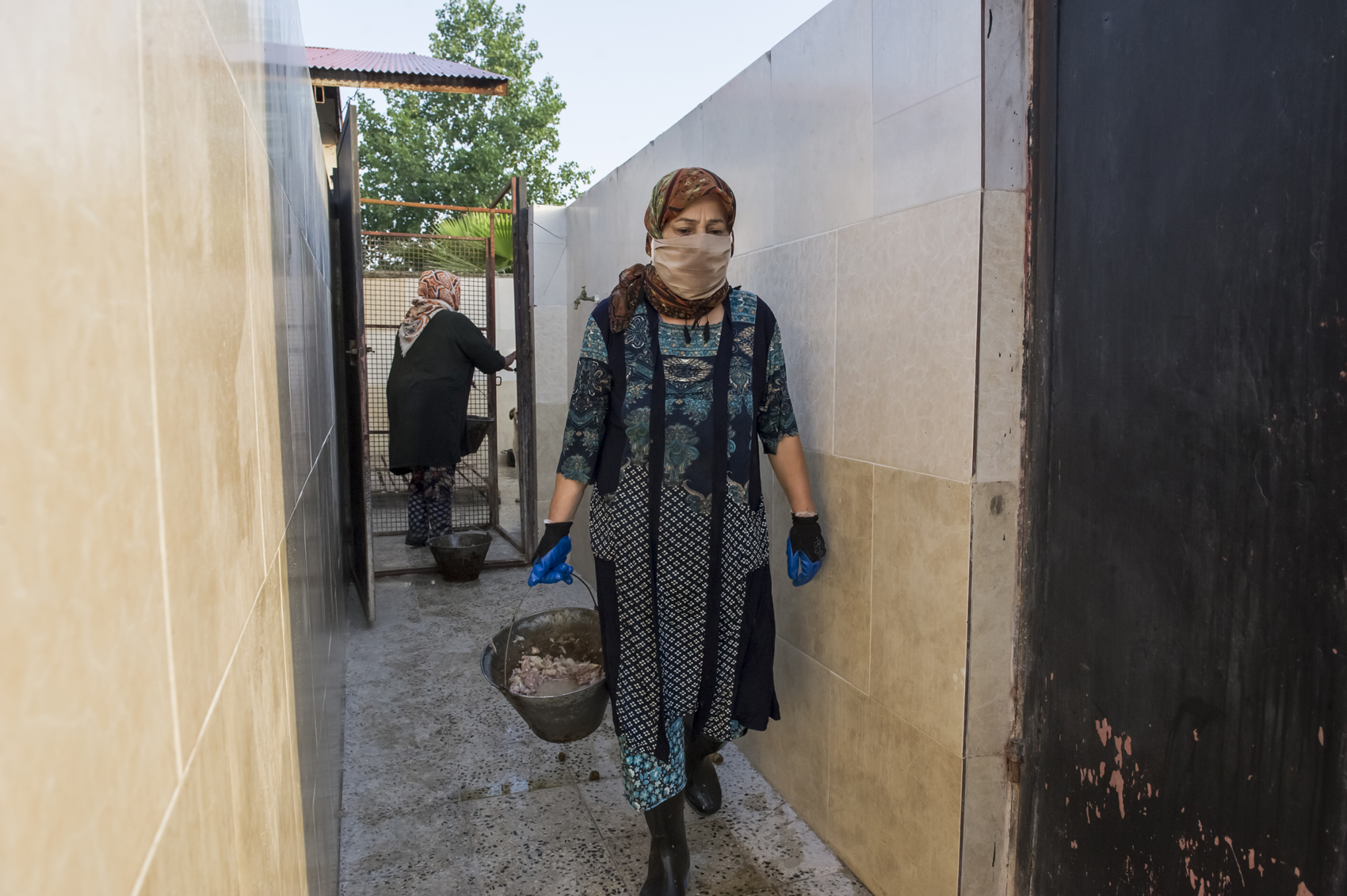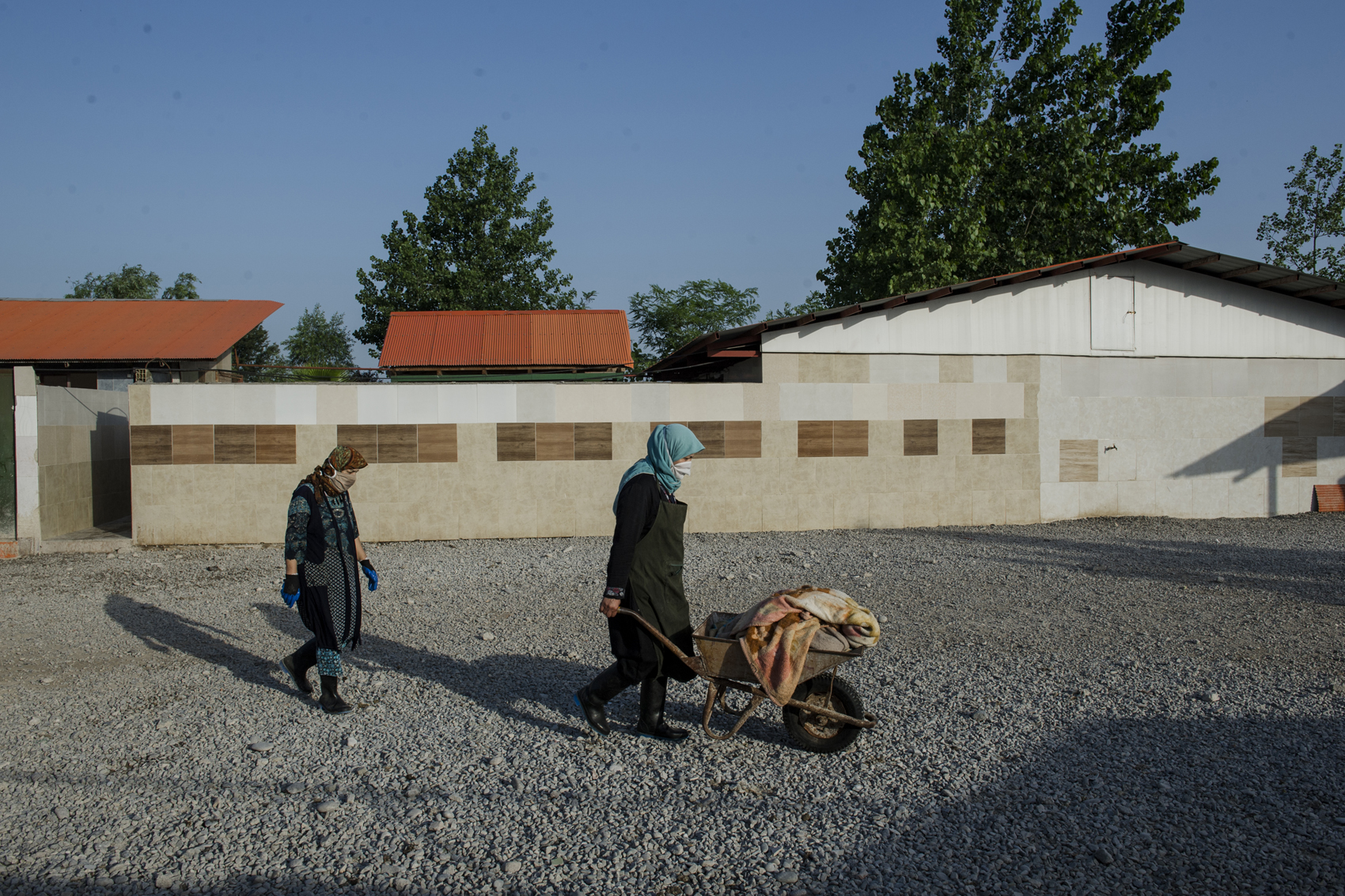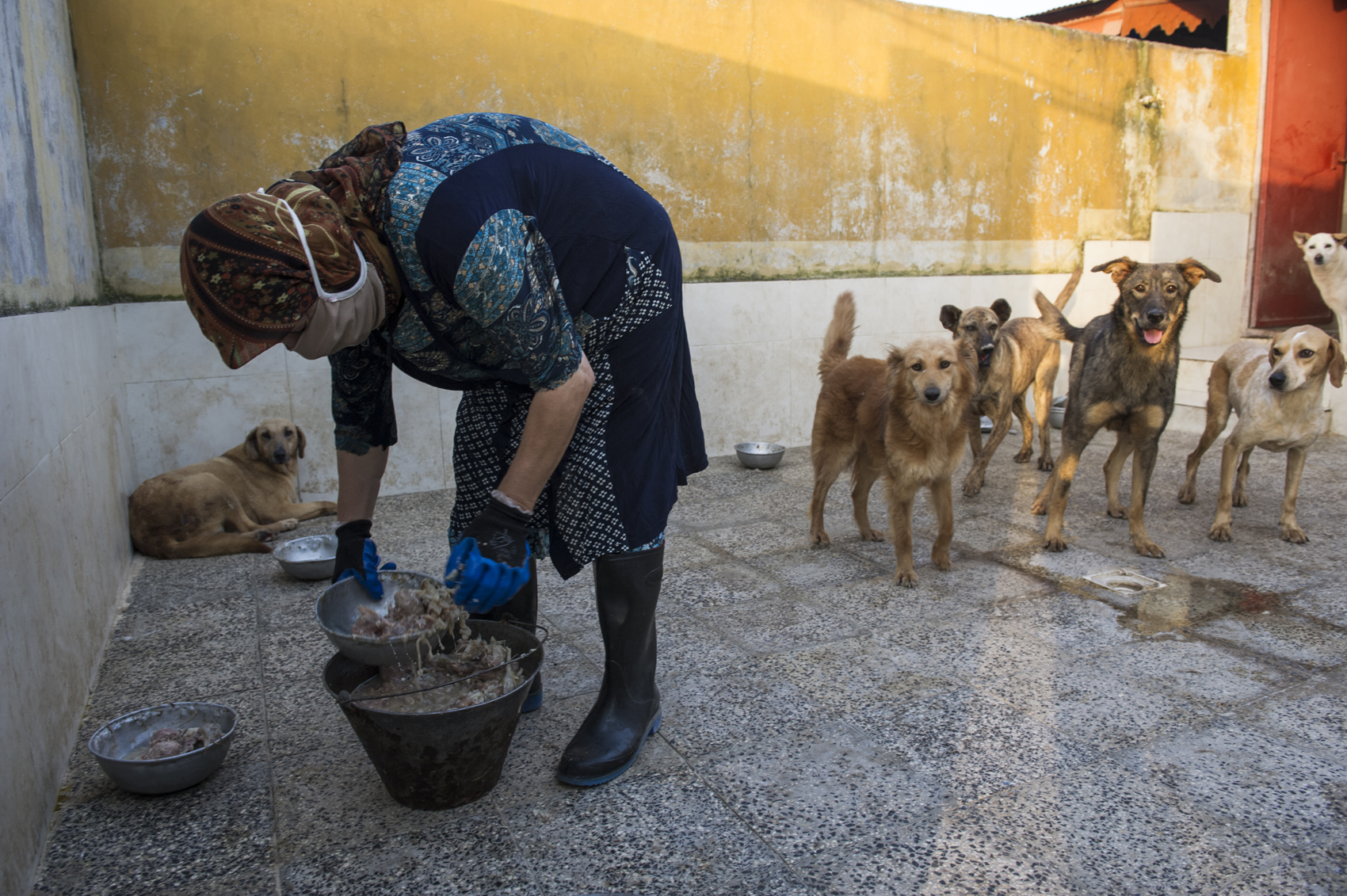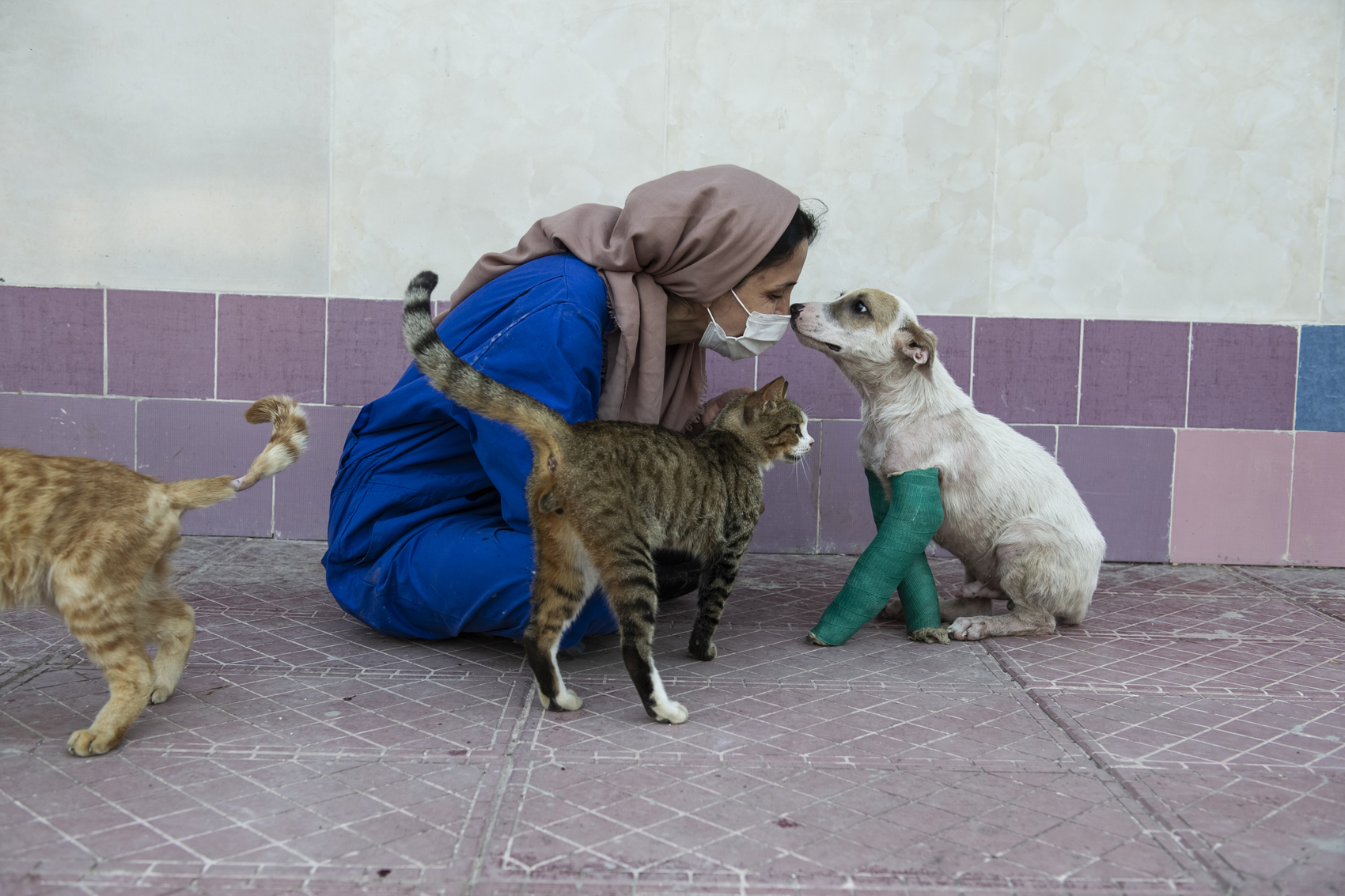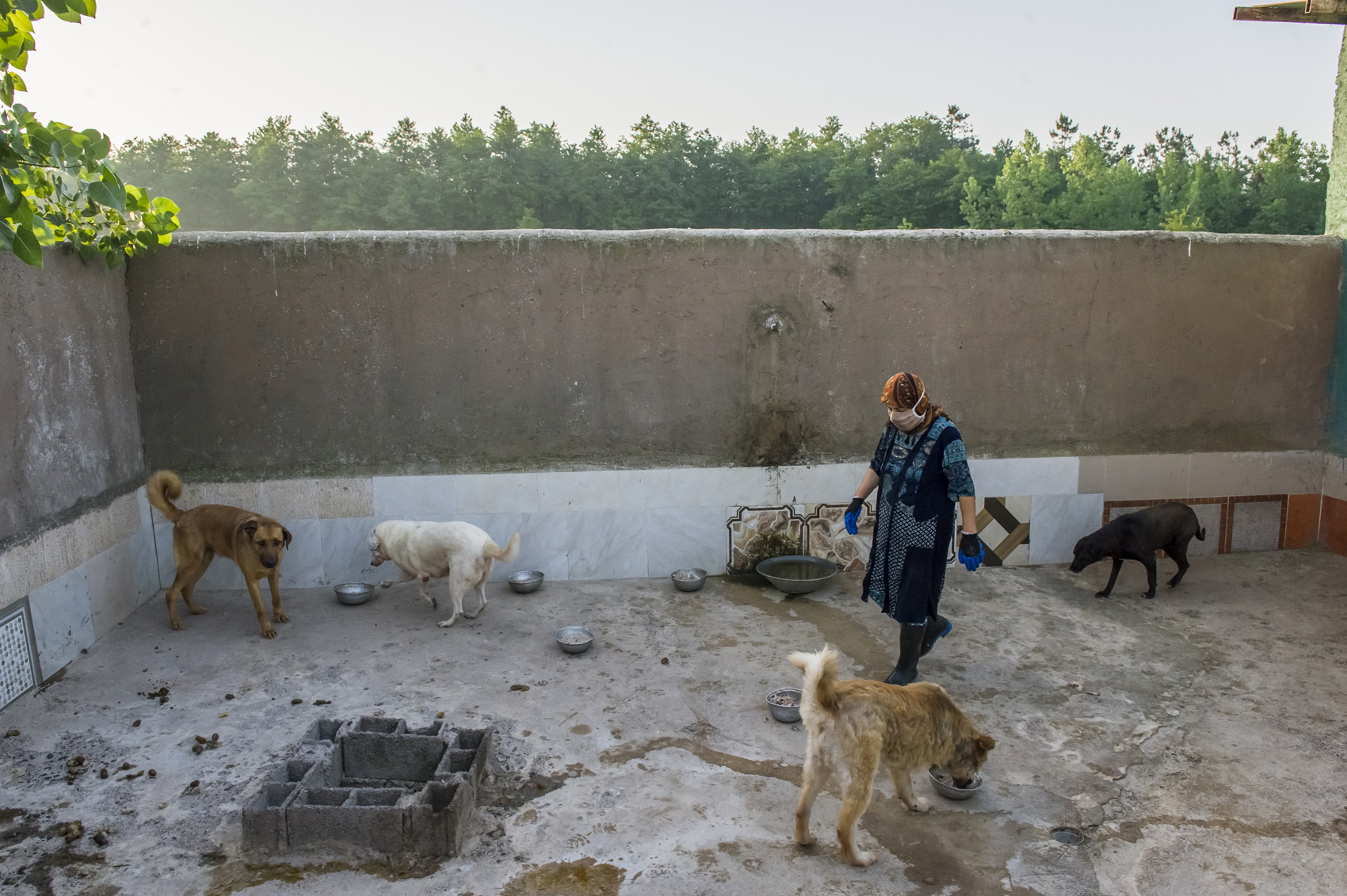Azadeh, The Animal Rescuer – (Extended)
Statement: - (2020 Grant recipients of Pulitzer Center) Ms. Azadeh Mahjoub is 39 years old. In 2012, she set up […]
- (2020 Grant recipients of Pulitzer Center)
Ms. Azadeh Mahjoub is 39 years old. In 2012, she set up a refuge for injured animals (often dogs and cats) in the suburbs of the city of Rasht (Lakan Shahr region), in the North of Iran. She is a graduate of accounting and was formerly employed at a public university. But Azadeh resigned from her job to protect animal rights. She sold her wedding gifts (jewelry), and aside her husband’s financial contribution, she raised the funds needed, and finally opened an animal rescue shelter.
150 dogs and 70 cats now live in this shelter. Most of them have been abused by previous owners, or injured in road accidents, or suffer with digestive or mental health issues. This place is the only shelter in Iran that also keeps dogs with spinal cord injuries. Three females and one male contractor cover daily tasks in the shelter, but keeping them around has been hard due to the hardships of the job and the small salaries they earn. For such a high volume of work, this place needs more than seven workers at a time, but with current financial difficulties, Azadeh cannot afford it. It is challenging to run such a place with only four employees.
Iran is an Islamic country, and the dog is considered an impure animal. Over time, when hardliners became aware of the existence of this shelter, Azadeh repeatedly received messages threatening that the shelter would be set on fire. Monthly expenses of the shelter, which exceed 30 million tomans ($1500) a month, are usually covered by public donations. Unfortunately, with the outbreak of coronavirus and people’s low incomes, the volume of public donations has greatly decreased, and the institute is struggling with many problems. These difficulties have also affected the workers, and two of them have had to be replaced.
During normal years, several restaurants and wedding halls permanently supported the shelter, giving it the leftover food of the previous night. After separating the excess fat, re-boiling it and combining it with dry food, shelter staff would feed it to the animals. The long-term closure of celebration halls and restaurants has caused yet another aspect of financial stress for the shelter.


